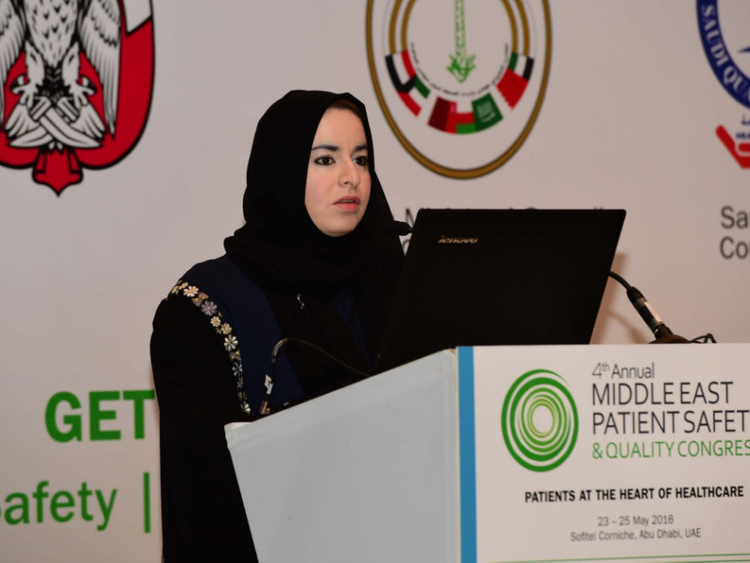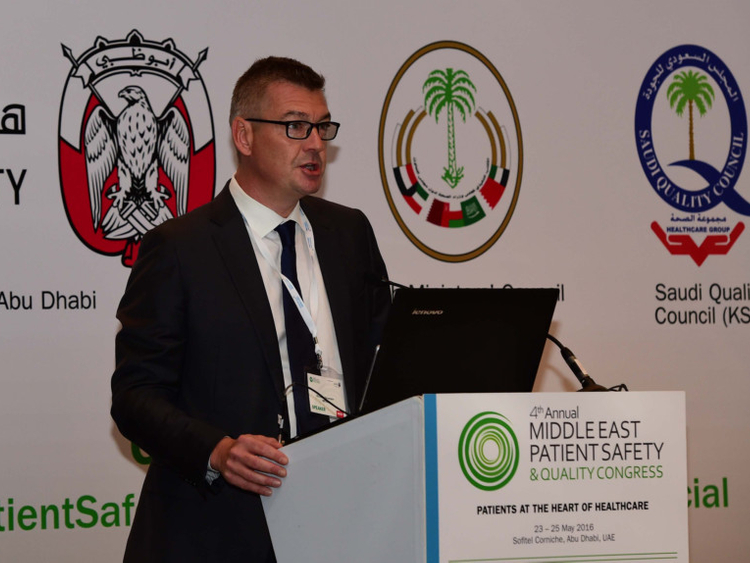
Abu Dhabi: Patients who register at emergency departments are able to leave within two hours from nearly 70 per cent of the emirate of Abu Dhabi’s 41 operating hospitals, top health officials announced in the capital on Monday.
This is in comparison to the beginning of 2015, when only 65.8 per cent of hospitals ensured that patients could leave within two hours of registering.
Overall, nearly 87 per cent of the hospitals were able to meet their patient waiting time targets by the end of 2015, compared to 82 per cent at the beginning of last year, they added.
This indicates that one of the biggest areas of focus in improving health-care quality within the emirate has largely been met, said Dr Asma Al Mannaei, director for strategy at the emirate’s health-care regulator, the Health Authority Abu Dhabi (Haad).
“When the Abu Dhabi Quality Index (Jawda) for health-care facilities was introduced in 2014, residents’ biggest concern was the long waiting periods they had to endure at public and private hospitals. Within a year of this quality system being implemented, most of the timeliness targets have however been reached,” Dr Al Mannaei told Gulf News.
“In light of this, our current area of focus is bettering patient safety in Abu Dhabi. Thirteen new measures regarding emergency care, infection control and perinatal and maternal care have been added to the 13 patient safety metrics in the Abu Dhabi Healthcare Quality Index as we seek to enhance effectiveness of care,” she added.
Dr Al Mannaei was speaking on the sidelines of the Middle East Patient Safety and Quality Congress, a three-day forum that will see 300 health-care officials and medical professionals discuss the challenges and progress in ensuring quality within the region’s health sector.
The Jawda quality index seeks to enhance health-care provision in four main areas, namely, patient safety, effectiveness of care, timeliness of service delivery and the level of patient-centric treatment.
It currently includes 11 measures of timeliness, 26 indicators of patient safety and outcomes, and 54 metrics to ascertain patient satisfaction through an annual survey. A dedicated quality team at each hospital also regularly meets Haad officials to review progress made, and devise development plans.
According to the Haad’s indicators, 98.8 per cent of hospitals now provide timely primary health-care appointments, and 91.3 per cent meet their targeted patient waiting times. Timeliness requirements vary from facility to facility, and are determined based on each hospital’s patient volumes and the type of care it provides, among other factors, explained Dr Omar Najim, senior adviser at the Haad.
“A system is also in the works to link the cost of care with quality, but no timeline has yet been set on its introduction and implementation,” Dr Al Mannaei said.
For the first time, the facilities providing the best quality health care in Abu Dhabi will be recognised on Tuesday. Officials said that these Jawda awards will provide further impetus for health-care providers to increase quality standards and effectiveness.














